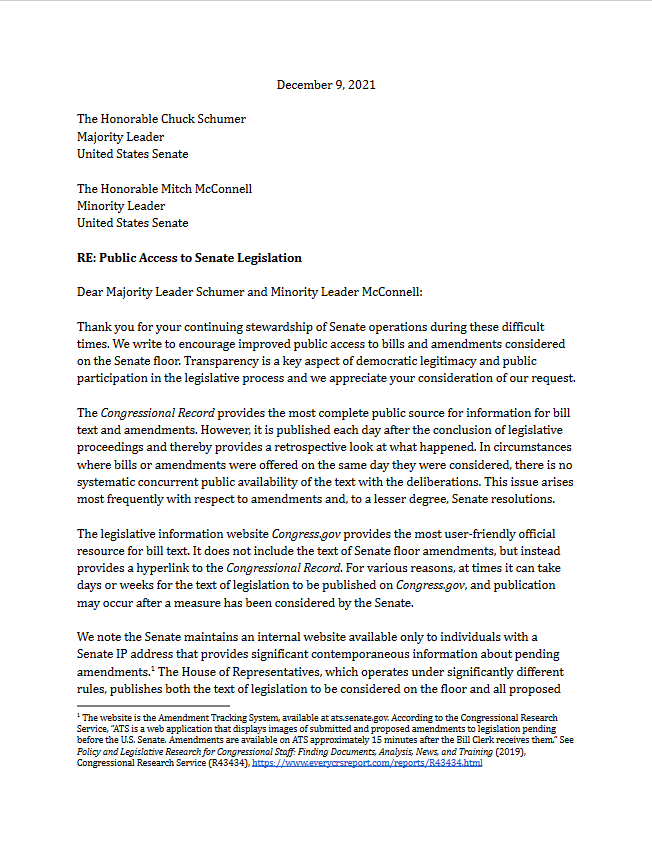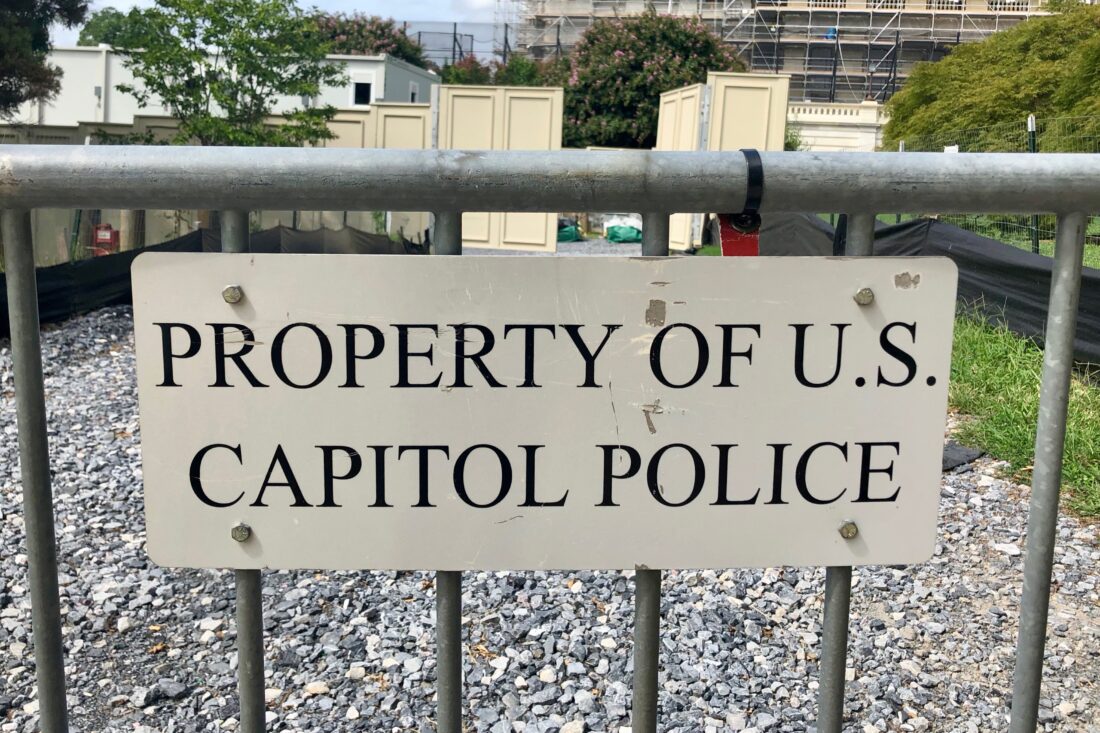Welcome to the Thanksgiving-week First Branch Forecast, a quick — abridged, even — look at the Legislative branch and government transparency. Tell your friends to subscribe.
THE TOP (AND ONLY) LINE
OOO. We know most people are out, so here’s just the highlights — we’ll have a full report next week.
Clearances. Each senator can now designate one personal office aide as eligible to apply for a TS/SCI clearance and is no longer restricted to a mere TS level, a practice that had allowed the Executive branch to stonewall the nearly 2/3s of senators that did not have staffers cleared for highly classified matters. The modernization effort was led by Sen. Chris Murphy. The House, however, has not changed its policies that prevent staff from providing members the individualized support they need on highly classified matters even though there have been multiple letters on the topic and leadership is not similarly constrained. (Even members of HPSCI are not afforded personal staff with a TS/SCI clearance, unlike their SSCI counterparts who for years have been provided additional staffers that can obtain TS/SCI clearances.)
Staff pay, retention, and diversity. The House Office of Diversity and Inclusion released its 2021 study on staff pay and diversity. It’s a BFD — something we’ve wanted for years — and you should read Roll Call’s early reporting, which focuses on the significant pay decreases in personal offices. (If you want more, we’ve got an in-depth report on this topic.) It’s our understanding the Senate completed its staff pay study earlier this year, but we haven’t seen it. If you have a copy, email us at capacity@demandprogress.org.
Censure. Rep. Gosar was censured by the House and removed from his committees for tweeting a video showing him murdering a colleague; some colleagues defended him as apologizing (he didn’t) and not having bad intentions (really?). Astonishingly, party leadership did not punish him, only two fellow partisans supported his censure, and it was suggested that unnamed Democratic members will be subject to the same punishment for unnamed offenses that have not happened yet. One is reminded of Alice in Wonderland: “Sentence first—verdict afterwards.” After the censure, Rep. Gosar retweeted the video.
House Sergeant at Arms. The Defense Department IG says the new House Sergeant at Arms, when he was the head of the DC National Guard, did not act at 4:35 when authorized to deploy on Jan. 6th and had to be told a second time, raising concerns about the SAA’s accounting of events. House SAA William Walker, who also serves as a member of the U.S. Capitol Police Board, has called the report false and asked it be retracted.
The Capitol Police are not getting real scrutiny from the Jan 6th commission according to an anonymous whistleblower. We have ideas for fixes.
CLASSIFIEDS
TechCongress is accepting applications for its 2022 Congressional Innovation Scholars program, an “early-career pipeline” for technologists interested in shaping tech policy. Apply here.
ModCom. The House Select Committee on the Modernization of Congress is hiring a clerk. Apply here.
Applications for College to Congress’ funded Capitol internship program for low-income college students open December 1st. More info here.
ODDS AND ENDS
You might be wondering why we didn’t mention the House’s passage of Build Back Better, Rep. McCarthy’s magic minute, the NDAA, the debt ceiling, and other assorted matters. What else could we say that hasn’t already been said at length? Have a great Thanksgiving. And go get your COVID booster.



